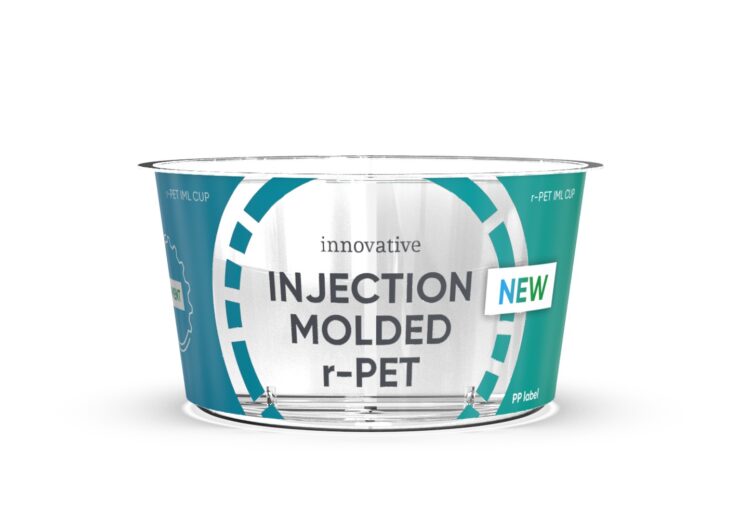They are suitable for filling lines, sealable and have considerable CO2e savings potential

The thin cups have an even wall thickness distribution, are designed to both filling line compatible and sealable. (Credit: Greiner Packaging)
After an intensive development phase, Greiner Packaging has achieved a breakthrough in cooperation with Engel – manufacturer of injection molding machines – and mold maker Brink B.V.: Thin-walled cups made of (r-) PET can now also be produced using injection molding technology. They are suitable for filling lines, sealable and have considerable CO2e savings potential. Thus, the cooperation opens up new opportunities for packaging designed for a circular economy.
- Thin-walled injection molding cups, which were previously realized using PP, can now be produced from r-PET.
- The use of 100% r-PET results in up to a 4-fold reduction in CO2e emissions compared to virgin PP material.]
- The thin cups have an even wall thickness distribution, are designed to both filling line compatible and sealable.
- The development collaboration underlines the potential of cross-industry cooperation for a circular economy.
Lightweight, made of recycled material and optimally recyclable – this is what the ideal packaging should look like. For the sake of the environment, but also for conformity with legal requirements. Together with Brink and Engel, Greiner Packaging has now reached a milestone on this path with the development of a thin-walled, injection-molded plastic cup made of r-PET that is ideally suited to industrial requirements.
Strong availability, food-grade status and high quality – these properties make r-PET the material of choice when it comes to sustainable packaging. Until now, however, PET has mostly only been used for thermoforming applications and for injection-molded bottles and cans. Injection-molded cups with thin walls have been realized mainly with polypropylene (PP), which to date has – mechanically recycled – not received a positive EFSA opinion. Therefore, use of recycled PET in injection molding opens up new possibilities, especially for food applications. Injection-molded cups that were thus far made out of PP can now also be offered in up to 100% r-PET – an advantage of which being up to 4 times less CO2e emissions compared to other materials.
Sebastian Diensthuber, Global Product Group Manager said: “When developing the thin-walled, injection-molded cups made of PET, it was particularly important for us to develop a solution that was not only innovative but also able to withstand our customers’ industrial requirements. The cups we developed together with Brink and Engel are designed in such a way that a transition to the new generation of cups is possible, both in filling and sealing.”
Source: Company Press Release
